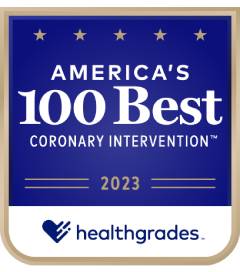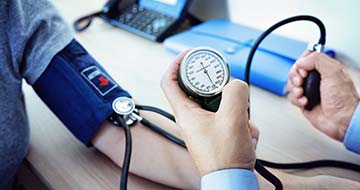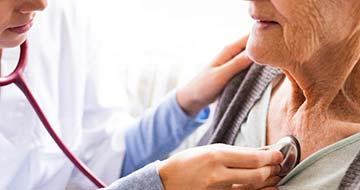What Causes Heart Disease?
In the United States, heart disease is the leading cause of death. More than 800,000 people die due to stroke, heart disease and other vascular diseases every year. If you have any of the following risk factors for heart disease, visit a cardiologist
in Framingham, MA:
- Clinical depression
- Diabetes or insulin resistance
- Excessive drinking
- Family history of heart disease
- High blood pressure
- High cholesterol level
- Obesity
- Physical inactivity
- Smoking
- Stress
- Unhealthy diet
What Causes a Heart Attack?
A heart attack or myocardial infarction happens when a section of the heart gets blocked, preventing it from getting an oxygen-rich blood supply. It is a life-threatening condition that needs immediate medical attention to restore blood flow as soon as
possible. Otherwise, the oxygen-deprived section of the heart will start dying.
If you or a loved one experiences major heart attack symptoms, call 911. Heart attack symptoms include:
- Chest pain or discomfort
- Feeling lightheaded or weak
- Pain or discomfort in the jaw, neck or back as well as in one or both arms or shoulders
- Shortness of break
- Unusual nausea, fatigue or vomiting
What Is Cardiovascular Disease?
Cardiovascular refers to the heart (cardio) and blood vessels (vascular). A person’s cardiovascular system includes the heart, veins, arteries and capillaries. Abnormalities and disorders affecting the cardiovascular system are cardiovascular diseases.
Here are some of them:
- Angin: chest pain that happens with decreased blood flow to the heart
- Aortic stenosis: the narrowing of the heart valve that results in blockage of the heart-exiting blood flow
- Arrhythmia: irregular heartbeat
- Atrial fibrillation (AFib): an irregular heart rhythm that may lead to a blood clot, stroke and other cardiac complications
- Congenital heart disease: any cardiac problem that is present from birth
- Coronary artery disease: any disease that affects the heart arteries
- Heart attack: sudden blockage of the supply of oxygen-rich blood to the heart
- Heart failure: the heart is not relaxing or contracting normally
- Dilated cardiomyopathy: the enlarged heart cannot efficiently pump blood
- Hypertrophic cardiomyopathy: the thickened heart walls lead to problems in the heart’s electrical stability, blood flow and muscle relaxation
- Mitral regurgitation: occurs when the blood flows back to the cardiac mitral valve during heart contractions
- Mitral valve prolapse: as the heart contracts, the abnormal mitral valve bulging to the left atrium results in mitral regurgitation
- Pulmonary stenosis: the narrowing of the pulmonary artery reduces right ventricle blood flow to the pulmonary artery
- Rheumatic heart disease: a strep throat complication resulting in heart inflammation, affecting the function of the heart valve
- Radiation heart disease: chest radiation that damages the blood vessels and heart valves
Some diseases affecting veins, arteries and capillaries include:
- Aneurysm: a bulge in an artery that can bleed and rupture
- Atherosclerosis: the formation of plaque along the wall of blood vessels restricts blood flow
- Blood clotting disorders: blood clots that develop abnormally slow or fast, resulting in excessive bleeding or clotting
- Buerger’s disease: blood vessels swell, restricting blood flow and causing clots to form, leading to tissue pain, damage and evengangrene
- Ischemic stroke: occurs when there is a blockage in the blood vessel supplying blood to the brain
- Renal artery disease: happens when the arteries supplying blood to the kidneys become narrow and stiff, depriving the kidneys of sufficient blood supply
- Raynaud’s disease: abnormal blood vessel narrowing that usually affects the toes and fingers when a person is stressed or cold
- Peripheral artery disease: reduced blood flow to the limbs caused by the narrowing of arteries
- Peripheral venous disease: leg swelling and varicose veins caused by damage or blockage in the peripheral arteries and veins
- Venous blood clots: when blood clots that form in the vein break loose, they can travel to the lungs and block blood flow
Cardiac Care Program Recognized by the American Heart Association
The American Heart Association has recognized MetroWest Medical Center’s cardiac care program as a leader in treating heart failure and coronary artery diseases. Our heart hospital in Framingham, MA is the only hospital between Boston and Worcester
with a fully equipped cardiac catheterization and electrophysiology lab. It enables us to provide immediate emergency care for patients experiencing a heart attack.
We also offer a specialized Telemetry Unit that complements our 12-bed
Intensive Cardiac Care Unit. Telemetry is a sophisticated, non-invasive method that monitors the heart’s rhythm and electrical activity. Its 24-hour monitoring capability allows doctors to identify changes and possible cardiac events.
Our cardiac catheterization lab has recently received the American Heart Association Gold Plus award for STEMI care. Our highly trained medical team consistently opens blocked arteries in heart attack patients in less than 90 minutes, which is the
gold standard for care.




.jpg?sfvrsn=f1756e6f_3)





